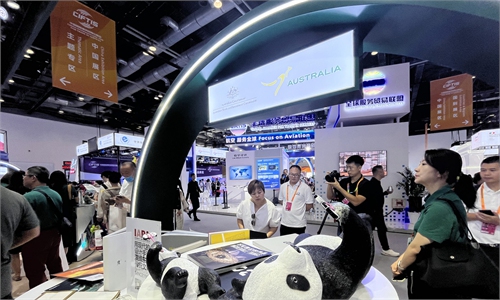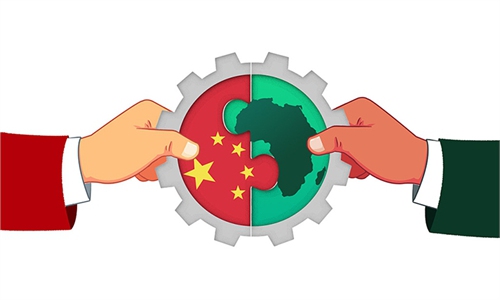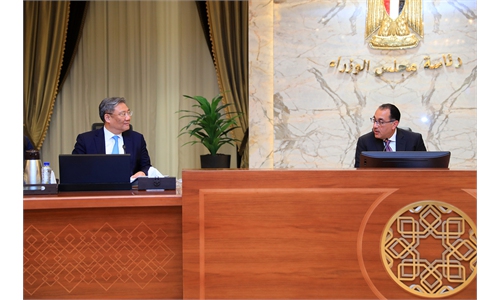A model for fruitful cooperation
China, Egypt cement partnership in infrastructure, connectivity, new energy: ambassador
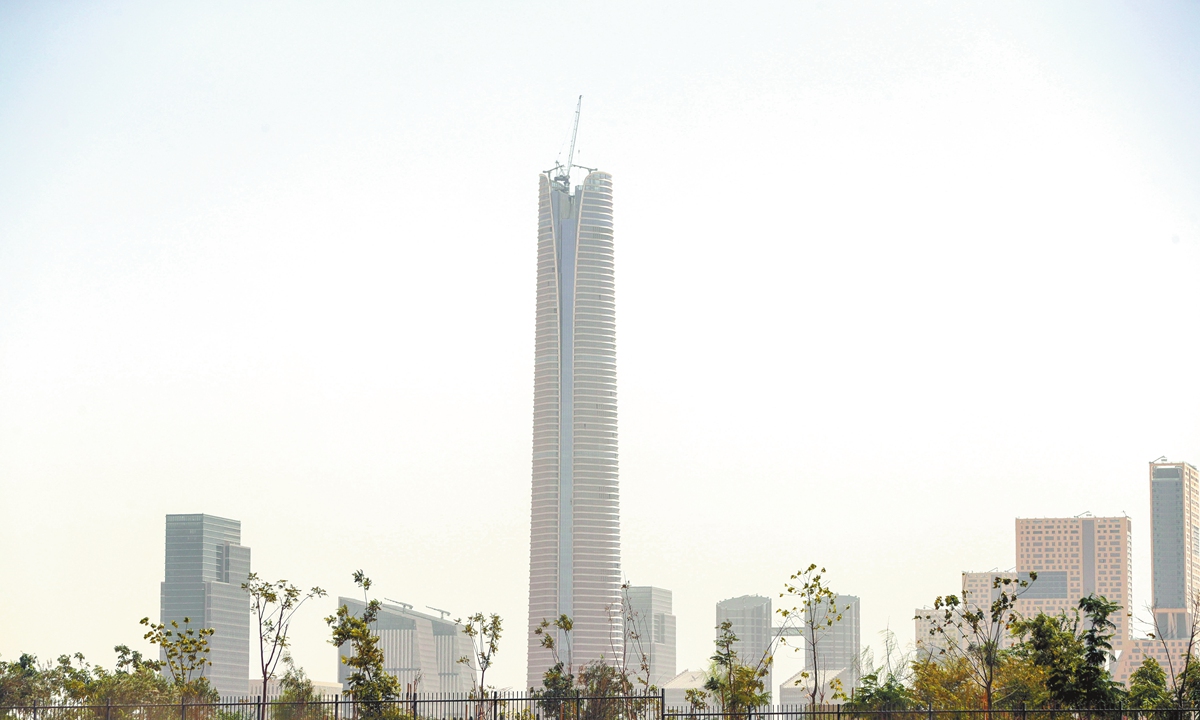
A view of the Iconic Tower at the new administrative capital of Egypt on September 11, 2023 Photo: VCG
Cooperation between China and Egypt is a great model of how partnerships can be developed between two developing countries, Ambassador of Egypt to China Assem Hanafi said.
He made the comment in an interview with the Global Times on the sidelines of the BRICS Forum on Partnership on New Industrial Revolution 2024, held on Tuesday and Wednesday in Xiamen, East China's Fujian Province.
Hanafi highlighted the positive bilateral cooperation in sectors such as infrastructure and telecommunications through various multilateral platforms and China-proposed Belt and Road Initiative (BRI), with expectations to further expand cooperation in new energy, and other emerging industries.
Hanafi said that 2024 is a very important year for bilateral relations, as the two countries are celebrating the 10th anniversary of the establishment of the China-Egypt comprehensive strategic partnership.
Promising partnership
Throughout the past decade, many milestone events have taken place, Hanafi said, highlighting the important consensus reached between the top leaders of the two countries in May on fostering and developing closer partnership between the two great nations.
In May, China and Egypt signed bilateral cooperation documents in various fields, including a plan for the promotion of cooperation in jointly building the Belt and Road, science and technology innovation, enhanced trade and investment cooperation and more, Xinhua News Agency reported.
"We look up to China in its incredible progress for modernization, poverty eradication, the leap in industrial manufacturing and embracing new technology," Hanafi said.
He noted that it is Egypt's aspiration as a developing country to partner with China and learn the best experience that is geared toward Egypt's developing needs in areas such as building up modern infrastructure, enhancing digital connectivity and poverty eradication.
Hanafi said that bilateral cooperation is primarily championed through the BRI platform. Egypt plays a pivotal role as a trade hub and stands at a strategic location supported by the Suez Canal, and the country is eager to develop closer partnership with China which will benefit Egypt's future development, he said.
Currently, a good number of infrastructure projects in Egypt are undergoing, such as the new administrative capital being built in a partnership with Chinese companies, which will help transform the urban landscape of Egypt, according to Hanafi.
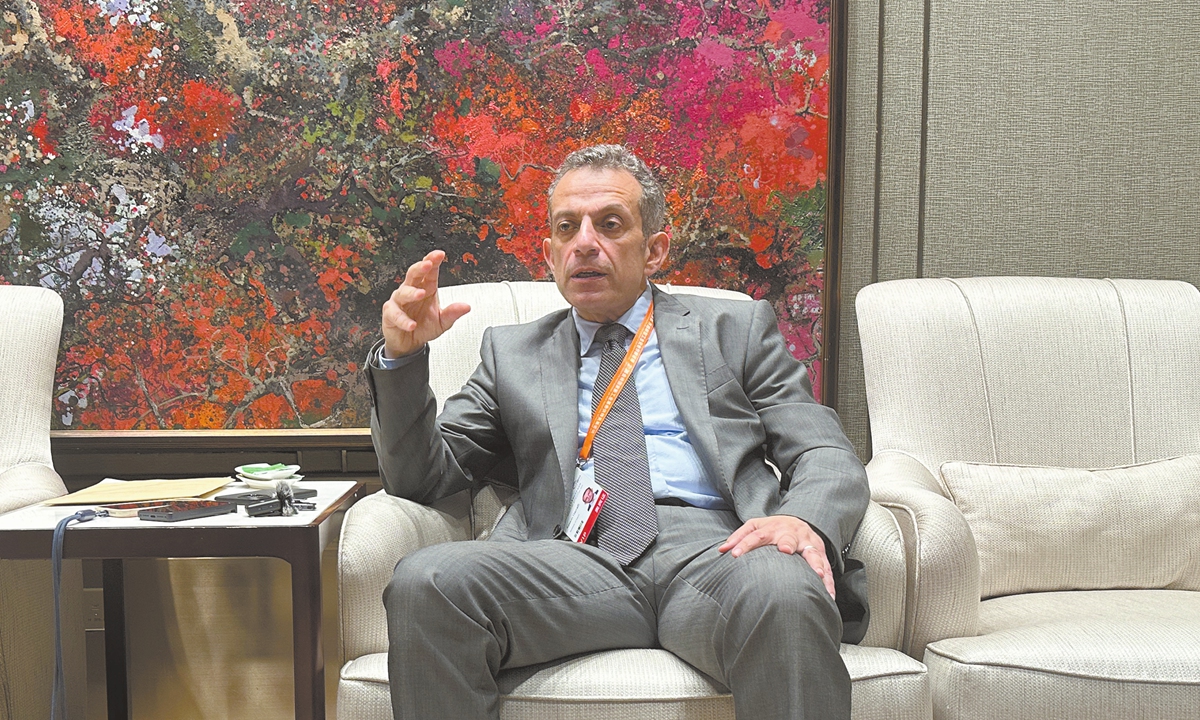
Ambassador of Egypt to China Assem Hanafi Photo: Xiong Xinyi/GT
In addition, Hanafi said that Egypt has various telecommunication projects being constructed in partnership with Chinese companies.
Egypt has drafted an ambitious plan to increase local internet penetration and mobile broadband coverage, which includes replacing ageing internet infrastructure with fiber optics, according to Hanafi, adding that Egypt has been cooperating with China and other global partners in the undertaking.
He mentioned the need to produce affordable and reliable telecommunication devices to cover the needs of the local population, especially the younger generation, who require proper education.
Hanafi stressed the importance of training local labor force, as the know-how is a positive dividend on Egypt's development and the ecosystem.
He highlighted that bilateral cooperation in port digitalization would significantly boost the capacity and handling capabilities of Egyptian ports along both the Mediterranean and the Red Sea.
In terms of the future cooperation, Hanafi sees growing opportunities in sectors such as new energy development with support from Egypt, including incentives to embrace partnerships with Chinese companies in the emerging industries. He anticipates that the two sides could have fruitful and win-win cooperation in the future.
Hanafi also hopes to enhance people-to-people exchanges, with more interactions in tourism, culture, education, and other sectors.
In the first seven months of 2024, China-Egypt bilateral trade reached 68.16 billion yuan ($9.57 billion), with China's exports to Egypt reaching 65.37 billion yuan and imports totaling 2.79 billion yuan, according to data from the General Administration of Customs.
Speaking on China's economic prospects in 2024, Hanafi highlighted the third plenary session of the 20th Central Committee of the Communist Party of China in July as an important event that came out with important decisions guiding the country's future development.
BRICS a hope for Global South
On January 1, 2024, Saudi Arabia, Egypt, the United Arab Emirates, Iran, and Ethiopia officially joined BRICS, doubling the number of its members from five countries to 10.
Hanafi noted that Egypt has joined the BRICS after a process of adhering to the "BRICS Plus" mechanism and engaged in a series of consultations with member economies, adding that Egypt appreciated the role played by China and other leading BRICS member states in encouraging its membership and support the bid for the membership.
BRICS also represents greater hope for the Global South developing economies. The current financial and political order in the world needs a strong voice from the developing countries, and platforms like the BRICS could help in coordinating among member economies for more representation and a more prominent voice in the global architecture, Hanafi said.
The aggregate GDP of the BRICS member countries now accounts for about 28 percent of the global economy, hitting $28.5 trillion, while their population, at 3.5 billion, accounts for about 45 percent of the world's total population, according to media reports.
